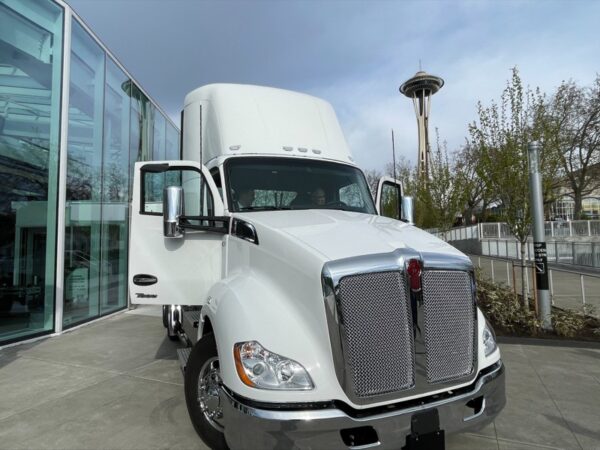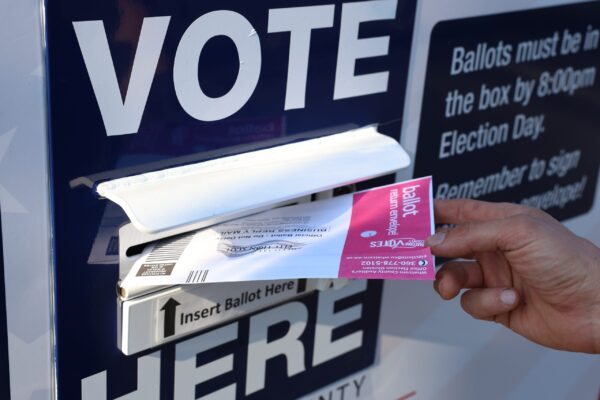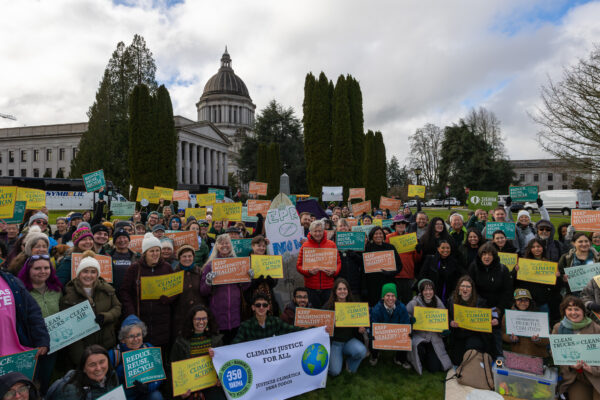Whether it’s cursing the lack of protected bike lanes, organizing for more diverse methods of commuting long distances, or affectionately identifying oneself as a NUMTOT (New Urbanist Memes for Transit Oriented Teens) on the NUMTOT Facebook page — transportation gets people jazzed. Transit is an increasingly hot topic of conversation and for good reason. How we get around our reservations, towns, suburbs, and cities is key to securing equitable access to opportunities and the essentials of life, and to ensuring a livable climate for generations to come. We must address transportation in our communities to tackle climate justice in Washington — people living in urban and rural Washington alike deserve an array of options to get them where they need to go.
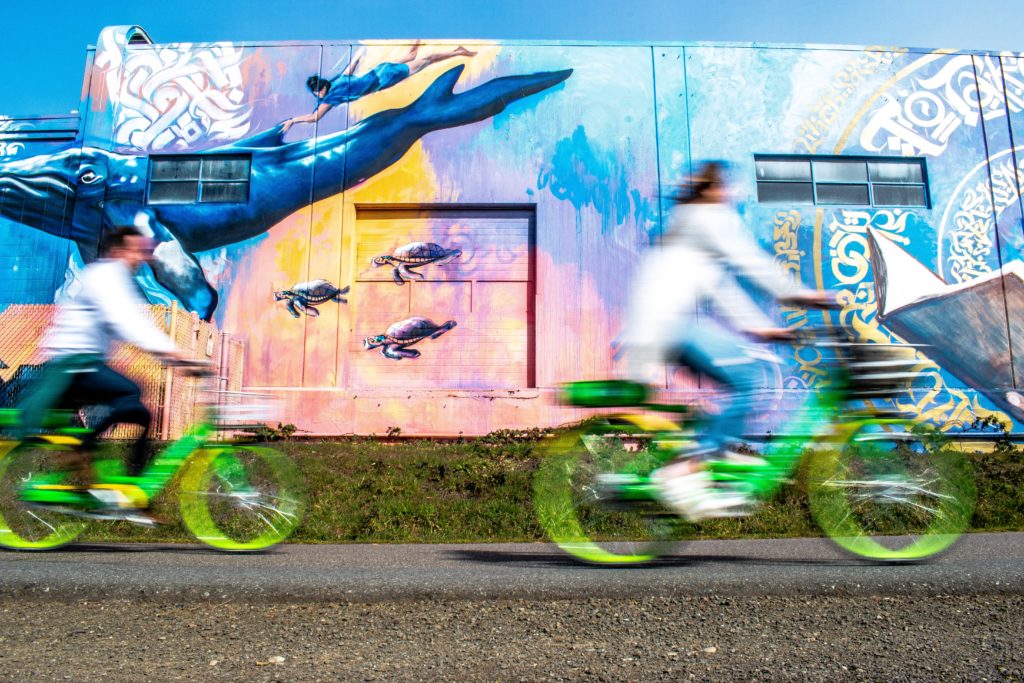
Our current transportation system requires burning fossil fuels, which increases greenhouse gas emissions. According to a 2021 report released by the Environmental Protection Agency, transportation emits the largest share of total greenhouse gas emissions in the United States (excluding the US military), producing 29% of total emissions in 2019. This holds true in Washington State where the Department of Ecology identifies the leading source of greenhouse gas emissions as coming from transportation. People across the state overwhelmingly rely on personal vehicles as their primary mode of transit, as well as trucking, commerce, and travel on planes and ferries.
The transportation sector sits at the nexus of transforming climate and social equity realities and influencing racial, economic, and disability justice. How we move in our communities determines our access to employment and education opportunities, healthcare and social services, green spaces, healthy and culturally appropriate grocery stores, and visiting friends and family.
Reliable and efficient public transit directly correlates to economic stability and access to employment. Clean and just transit options promote healthy lifestyles and healthy communities — which every Washingtonian deserves. Transit also affects health outcomes such as traffic accidents and exposure to toxic pollution. Black, Indigenous, and people of color (BIPOC) and low-income communities are forced to accept the burden of poor air quality and a harmful proximity to rivers of toxic pollution cutting through communities in the form of freeways.
Thanks to the resilient work of transportation advocates and coalitions across the state, transportation equity has garnered attention from policymakers. In 2015, a statewide transportation package passed after years of failed bills. This package included a gas tax increase, lower and cleaner carbon fuels standards, and a requirement that state agencies add to a fund to “support transit-oriented, affordable housing development,” writes Stephen Fesler in The Urbanist.
There are many complexities to juggle in a transportation package, including choosing revenue sources and determining how money is allocated between maintenance, investing in multimodal options — like sidewalks, bike lanes, bus routes and trains — and roadway expansion. The 2015 package represented a start to transform transit in Washington, but deeper systematic change is needed to create an anti-racist, anti-abelist, just transportation system.
Transportation justice — and an equitable transportation package — must also center rural communities and Tribal Nations who experience similar and unique roadblocks to accessing essential services and are often overlooked in conversations about multimodal transit options.

Fundamentally, transportation justice links solutions to social and climate justice when it ensures everyone can get from point A to point B in reliable, safe, and environmentally sustainable ways regardless of zip code, race, ability, class, or any other identity. Washington State can do this by investing in multi-modal transit options, such as public transit, protected bike lanes, continuous sidewalks, and center investments in frontline and overburdened communities.
In 2020, a Transportation for All bill was proposed. The Climate Alliance describes Transportation for All as an effort to create equity, environmental justice, and accessibility-informed goals for Washington’s transportation sector. The bill did not pass in its entirety, but a budget provision required state agencies to consult overburdened communities and fund two projects that center clean and just transportation.
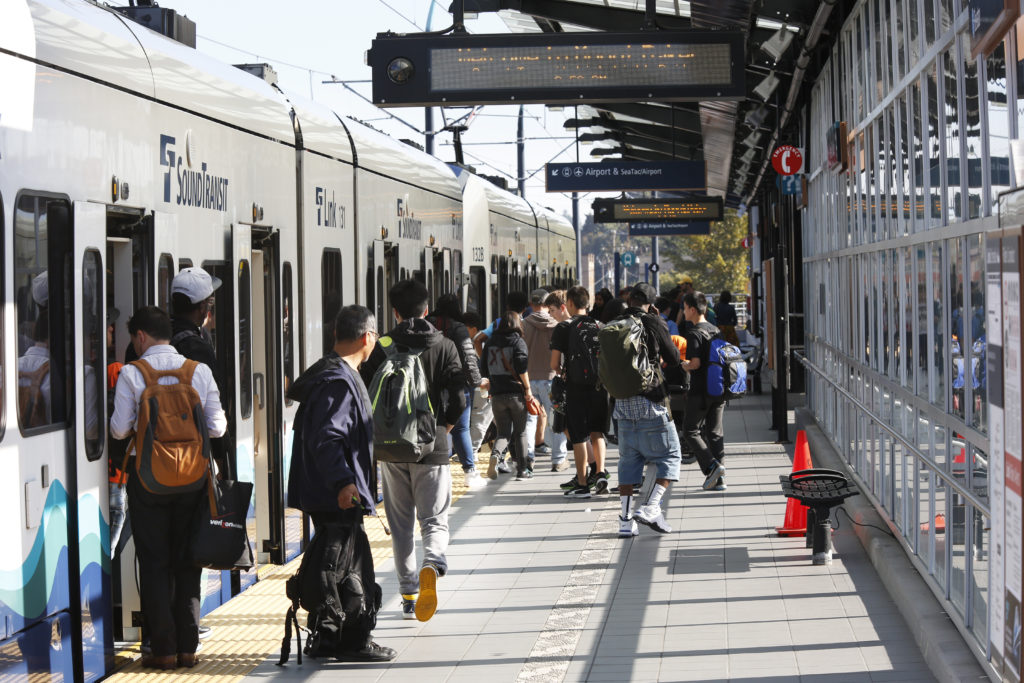
How our transportation system is funded and how investments are allocated, with low emission and carbon impacts, are essential facets of a transportation package. That is the aim of the proposed 2021 Clean and Just Transportation Package. The bill included a provision to allocate a large portion of investments towards building up safe and accessible transportation in overburdened neighborhoods.
Re-writing a transit budget is a major, multi-year operation that requires constructing new tax codes and identifying alternative revenue sources. Disappointingly, the package was not even introduced by the legislature this year. However, Governor Jay Inslee ratified the Clean Fuel Standard, targeting the reduction of the carbon intensity of fuel with the goal to reduce statewide “emissions by 1.8 million metric tons of carbon dioxide equivalent by 2030,” according to the Department of Ecology.
The wins and losses from this year are significant in the landscape of transportation equity in our state. The urgent need for financially and physically accessible, environmentally clean transportation options is not a new concept for communities across the state — especially those that rely on public transit and sidewalks, and who experience the negative impacts of underinvested transit daily. What is new is that transportation solutions are being brought to legislators who increasingly understand that addressing transportation is a climate and equity pursuit, too.
The current initiatives are not enough. There is no time to waste to transform our transportation sector to meet the needs of everyone. Transit connects environmental justice, climate justice, and social justice, and can shuttle us from a disconnected, fossil fuel-reliant economy towards a world where physical and social barriers are dissolved and our societies are rooted in collaboration with the natural world.

Rebecca Lumbantobing (she/her) is a senior at the University of Puget Sound pursuing a double major in Environmental Policy and Science, Technology & Society. She is passionate about climate and environmental justice and sustainable and just transit. Rebecca calls Washington and Indonesia home. In her free time, she loves to cook, play the guitar, and witness the Tacoma sunsets.
